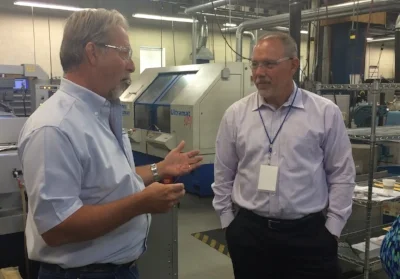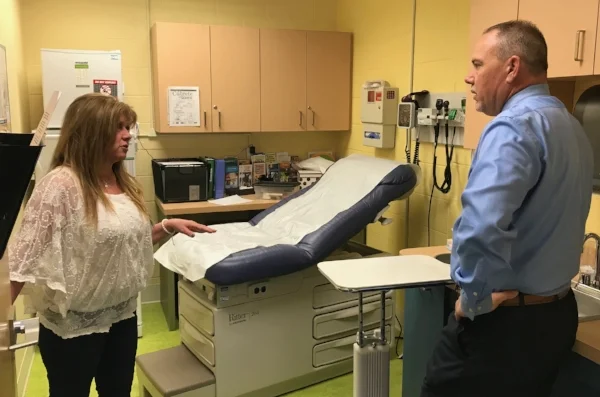State tax credit program aims to entice STEM grads to stay in CT
HartfordBusiness.com
December 4, 2017
Susmitha Rayakota will graduate from UConn with a computer science and engineering degree in 2019, and when she does, she's planning to take advantage of a new tax credit geared toward keeping young talent like her in the state.
The $500 student graduate tax credit, which can be claimed for five consecutive years, was tucked into the recently passed state budget and will be available for college grads starting in Jan. 2019. Eligible recipients will have to earn a degree in the science, technology, engineering or math (STEM) fields, be employed in Connecticut and live or move here within two years of graduating.
Rayakota, 19, a UConn junior who lives in Stratford, said she moved around while growing up and is eager to put down roots. She also has had two paid internships with helicopter maker Sikorsky and hopes to return for another internship, or even employment after she graduates, she said. With student loans to repay, Rayakota said the tax credit can provide a financial assist and give her a reason to stay in the state.
"I think it's great," Rayakota said, "especially because tuition has been going up recently, so if it provides an incentive to stay in the state, then I think it helps."
The tax credit was the brainchild of House Speaker Joe Aresimowicz (D-Berlin), who said he came up with the idea after chatting with young football players he's coached, who left the state — talents in tow — for bigger cities like New York and Boston. (Aresimowicz is the football coach of Berlin High School.)
He said top U.S. tech firms are chasing talent all over the country and world, so Connecticut needs to offer incentives to keep smart college grads here. Students he talked to indicated the five-year tax credit window was an important benchmark in getting graduates to stay in one location, he said.
He also noted that UConn this year achieved a ranking in the top 20 of public universities from U.S. News & World Report and "getting those kids to stay is important."
"Especially in the area of STEM, if we're talking about our best and brightest leaving, we need to do something to incentivize them to stay," Aresimowicz said. "And if they stay, companies are going to come here to follow them. We're seeing that happen in the Boston area and New York and also in the Raleigh-Durham Research Triangle."
Connecticut has suffered several blows in the last year with three major employers, Aetna, General Electric and Alexion, announcing plans to move their headquarters to larger cities. The companies said their moves, Aetna's to New York and GE's and Alexion's to Boston, were aimed at gaining access to a larger pool of STEM workers.
Filling a need
Connecticut modeled its tax credit after the state of Maine, Aresimowicz said, which has a broader program that reimburses student loan payments for college graduates who live and work in the Pine Tree State.
Connecticut lawmakers also reviewed similar incentives offered by another half-dozen or so states, Aresimowicz said.
Given the state's financial crisis, Aresimowicz said he was happy lawmakers agreed to adopt the tax credit, even though he'd liked to have seen an even bigger annual credit. The tax credit, however, won't impact the current two-year, $41.3 billion budget. Once the program does kick in, it's estimated to cost the state $3.9 million and $7.9 million in fiscal years 2020 and 2021 respectively, Aresimowicz's office said.
Pete Gioia, vice president and economist with the Connecticut Business & Industry Association, said the tax credit is a valuable lure, especially since there are 25,000 vacant STEM jobs in the state right now. More than half are in manufacturing, and others are in bioscience, health care, trucking, building trades, actuarial and other fields, he said.
"If we're going to power a resurgence here, it's needed," Gioia said, referring to the tax credit. "It's a start."
The tax credit is available to college graduates with a bachelor's, master's or doctorate degree, but Gioia said eligibility should have also included community college grads and those graduating from technical high schools, who are in demand by the state's manufacturers.
While those receiving the tax credits may pay less in taxes, Gioia pointed out they will also constitute a new set of taxpayers bringing revenue into the state.
"If you told [the state budget office], 'I have 20,000 new taxpayers for you,' they'd do a dance of joy," he said.
Limited appeal
The tax credit has appeal, but it also has limitations, another UConn student suggested.
UConn sophomore Nandan Tumu, 19, of Farmington, will graduate in 2020 with a computer science degree, but he isn't sure whether he'll focus on autonomous vehicle development, whose tech hubs are in Silicon Valley and Seattle, or genomics, which he acknowledges could lead to work at the Jackson Laboratory in Farmington.
If he chases the autonomous vehicle industry, he said, all bets are off.
"At the end of the day, career advancement opportunities and the benefits of being in a location that's a hub of industry [outside of Connecticut] far outweigh the $2,500 you're going to get over five years as a result of this tax credit," he said.
If he stays here for genomics, however, he would apply for the tax credit, he said.





